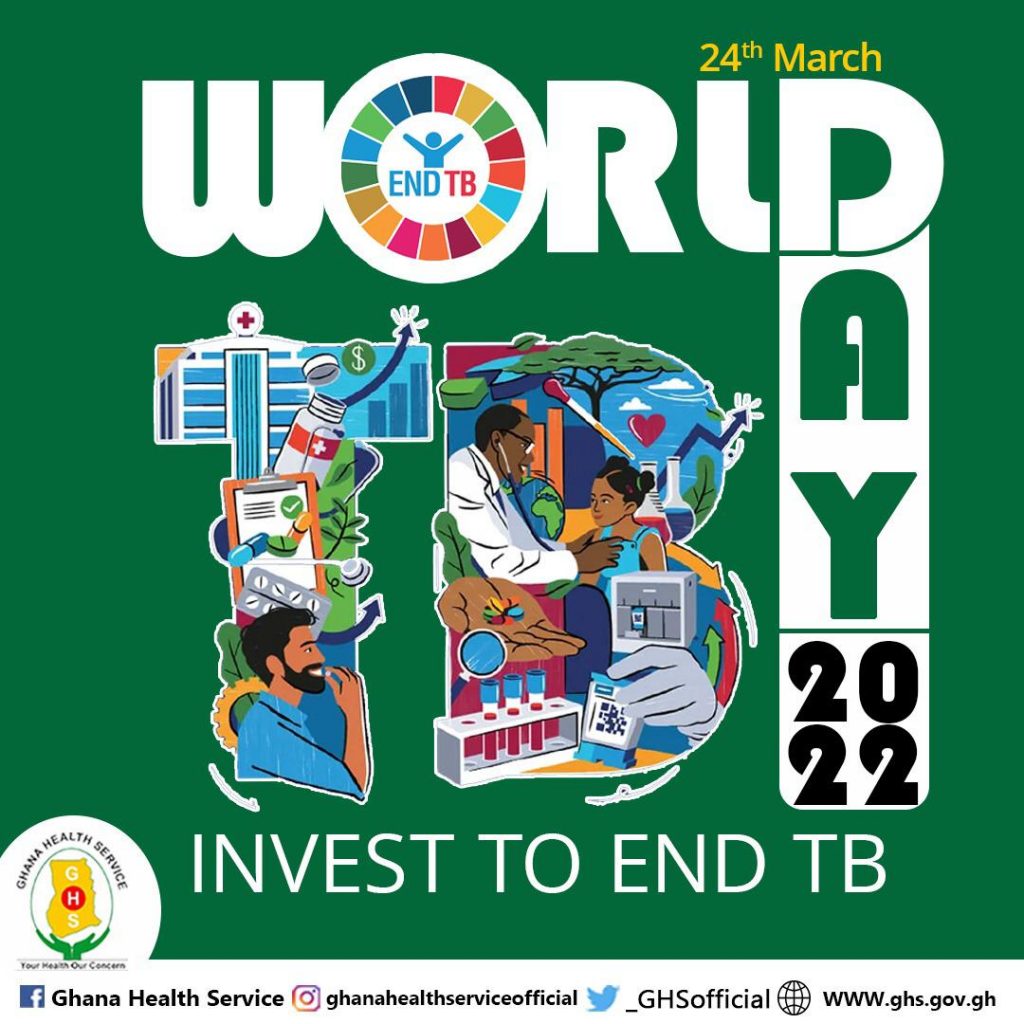
This year’s World Tuberculosis Day celebration is on the theme, “Invest To End TB. Save Lives.” World Tuberculosis is marked around the globe on March 24 each year to raise awareness and bring the number of infected cases under control.
This day is a significant occasion for all health workers, partners, researchers, the TB community and all governments who contribute their resources to fight against TB.
The date for the celebration of World TB Day was set aside to observe the day in 1882 when Dr Robert Koch announced his discovery of Mycobacterium tuberculosis, the bacillus that causes tuberculosis (TB).
Ghana like any other nation is not exempted in the celebration of the day, as activities are carried out annually with other programmes to intensify public awareness about the need to invest in TB diagnostic tools such as TB research, TB Preventive Therapy, TB Advocacy against stigma.
According to the World Health Organization (WHO), TB is the second leading infectious killer globally after coronavirus. It is estimated that each day, about 4,010 people lose their lives to TB across the world and 28, 000 get infected.
In Ghana, the Ghana Health Service’s current estimate indicates that 44,000 new cases have been recorded with actual treatment cases of 13,332 representing 30%, whilst missing cases comes with a record of 30,668 representing 70%.
4,400 cases of TB cases are found in children, with actual treatment of 645.
A number of undiagnosed cases stand at 12,000 with actual treatment being recorded at 1120 representing 8.6%.
Mode of transmission
Tuberculosis is transmitted from a sick TB patient as droplet infection through coughing, singing and sneezing. Inhalation of these droplets by an uninfected person may cause infection.
It mostly affects the lungs but can also affect other organs in the body such as the pleural cavity, liver, scrotum, kidney, intestine and womb.
Symptoms of tuberculosis
Symptoms to look out for include cough, weight loss (poor weight gain in children), fever, tiredness, night sweats, chest pain, and cough with blood-stained sputum.
Who is at risk?
Adults in most parts of the developing world including Ghana are exposed to TB bacteria without knowing resulting in TB infection. The progression from infection (latent TB) to active TB disease depends on the immunity of the individual. Those at higher risk of progressing to disease are smokers, alcoholics, prisoners, people living in overcrowded and poorly ventilated rooms, mine workers or persons exposed to silica, and persons with lowered immunity due to medical conditions such as HIV, diabetes, cancers, kidney failure and malnutrition.
Treatment
TB is cured with effective drugs using the Directly Observed Treatment (DOT) approach. The treatment regimen is for six months. Patients take their medications in their community under the supervision of a treatment supporter who could be a community health officer, a relative of the patient or a volunteer
Conclusion
The risk of TB in Ghana is high. TB anywhere is TB everywhere. We are all at risk. The good news is that TB is curable if we seek early treatment. Any person coughing for any duration with one or more TB symptoms report to the nearest health facility. We should try to avoid overcrowded rooms and ensure proper ventilation. TB patients should be encouraged to complete treatment rather than being ostracized. e patient or a volunteer. This strategy is known as community-based TB care.





